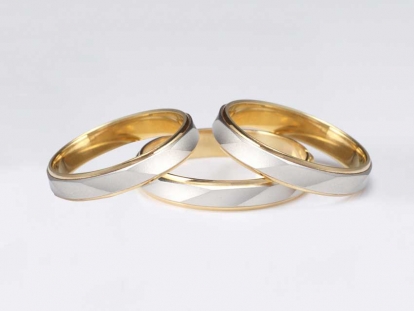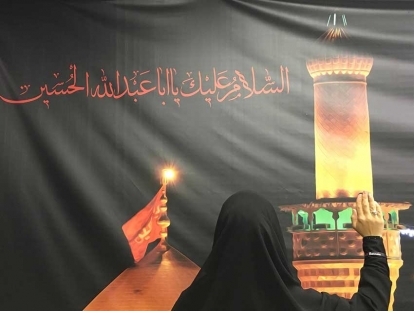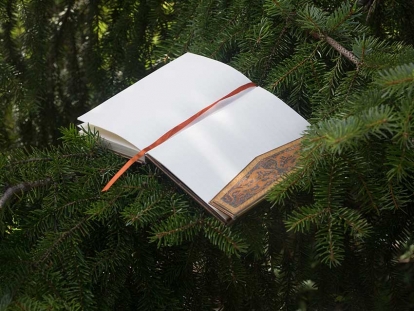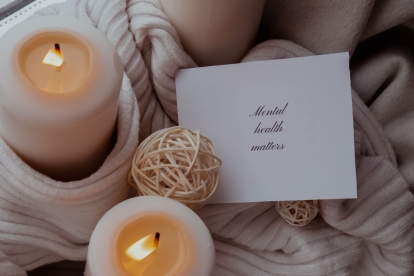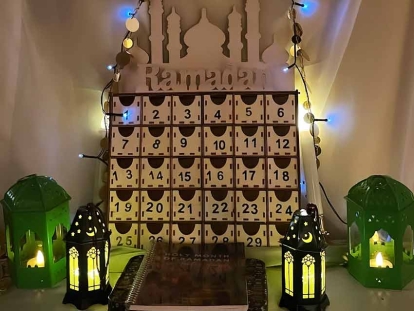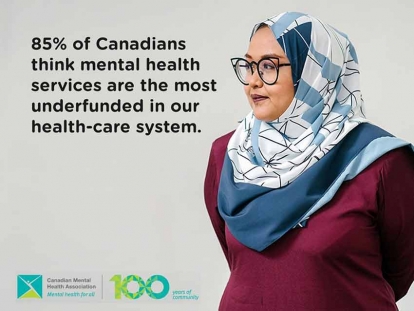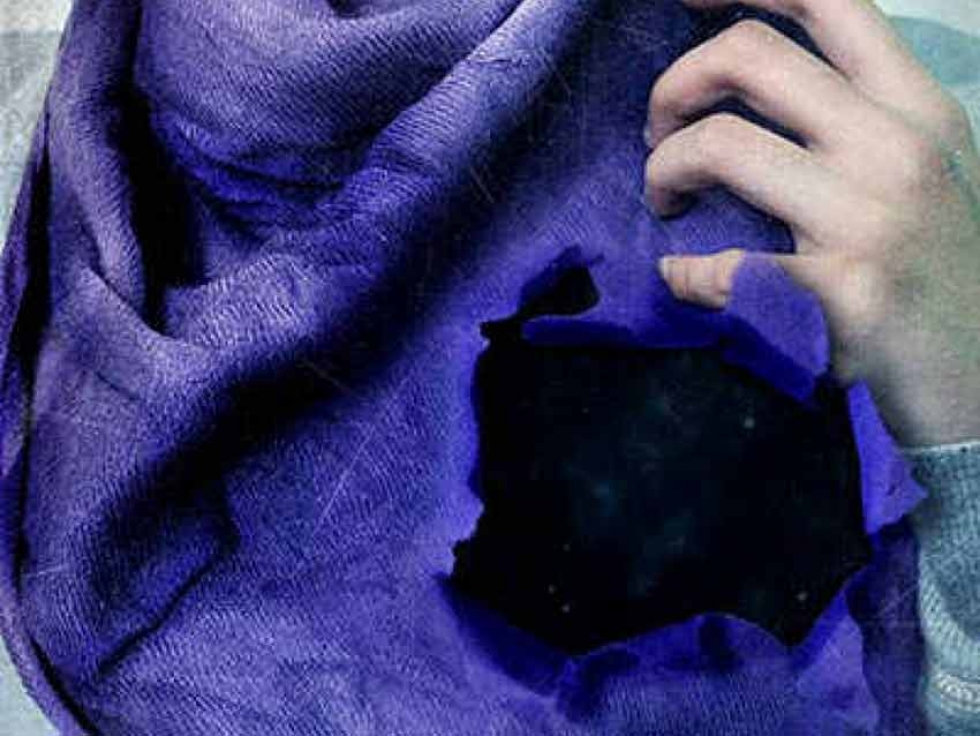 Umm Zaynab explores the need for grief counselling in Muslim communities.
Samiya Khan
Umm Zaynab explores the need for grief counselling in Muslim communities.
Samiya Khan
Nov
Grief counselling in Muslim communities: A void that needs to be filled
Written by Muslim Link VoicesMuslim Link would like to thank Umm Zaynab for her anonymous contribution which sheds light on a serious gap in Muslim community services in Canada.
--------------------
The loss of a loved one is something that most of us will inevitably experience in the course of our lives. It is surprising then that there are very few resources available in our communities and in our institutions to help and support those experiencing such a loss. Our mosques and institutions often seem to think that in the event of a death, their role ends with settling matters of the funeral - bathing, offering funeral prayers for and burying the deceased.
Very few, if any organizations, think about the support family members and close relatives need once their loved one is buried. Once the worldly matters of the funeral are dealt with and everyone goes off to their homes, how can the family and friends be supported to deal with the loss? Some organizations put together funds to help family members financially and logistically, but very few think about the emotional and spiritual support loved ones of the deceased need through this journey. Grief and bereavement counselling services are painfully lacking in our communities. In a matter where our faith makes a pivotal difference to the experience, it is unfortunate that we lack the resources available to help members of the community find guidance through their faith when they experience a loss.
I have experienced grief and loss first hand in some of the closest relations one could have within a little more than a year. And I know how hard dealing with each of those episodes has been emotionally and spiritually. I lost my father and then a baby and I experienced some of the darkest periods of my life in those months, all the while trying to find resources and answers to help deal with the questions and doubts that kept coming to my mind during those early days.
I remember searching and searching for the Islamic perspective on grief, loss and healing while I was in the throes of those difficult times. I wanted to find something that would help me deal with the feelings I found myself drowning in. I wanted to read articles and listen to lectures that would help deal with the doubts Shaytan (Satan) was putting in my mind. I wanted to read the experiences of other Muslim brothers and sisters about how they dealt with loss and grief and how they found strength and healing in their deen (religion).
But there was very little out there on the internet. What little was available was scattered and difficult to find. It was a quote buried somewhere in an article or a few paragraphs in a post shared on some scholar’s Facebook page. I found comfort in the Quran and the ahadith, in zikr and duas (prayers), in the writings and works of different scholars and writers, and in the words and experiences of sisters who I was able to reach out to through acquaintances and online groups. But I spent a lot of time digging through a lot of material to find what answered my questions, dealt with my doubts and calmed my heart.
There are many non-Muslim resources available on the internet that focus on grief, loss and healing. Although helpful, I felt these resources missed a vital component for us Muslims and that is the component of our faith. In Islam, we believe this life is not the end. We know that Allah returns what we lose, whether it is in this world or the next. We know death is pre-written and that everyone has an appointed time that we cannot change. We know everything we experience is a test and has some higher purpose. And we know that Allah in His Infinite Wisdom does whatever is best for us even if we don’t understand how right now.
All of this makes a huge difference to how we experience loss and grief.
Yes, grief is the same for everyone, it hurts in the same ways, the heart aches, there are tears, sadness, a feeling of emptiness, guilt, questions and doubts.
But Islam teaches us ways to deal with that grief, that emptiness and those doubts and questions. Islam has a lot of answers for us. Answers that give us peace, strength and hope. We know our tears, our grief and our losses are not meaningless. We know Allah (swt) has a greater plan for us and we trust His Wisdom and His plan. Our deen (faith) is the only thing that gives us peace at such times. Our faith is what gives us hope and strength to move on.
I remember the call I got from one of the social workers from the hospital to check up on me after the stillbirth of my daughter after a full-term pregnancy. She was very compassionate and helpful. She asked me how I was doing in all aspects: emotionally, psychologically, physically and spiritually. When she hit the spirituality question, she said a lot of people are angry with God at such times and asked how I was doing spiritually. I remember saying I was finding a lot of peace in my faith and she was a little surprised. Then she said, so you are finding meaning in your faith to something that otherwise doesn’t seem to have meaning? I said yes, alhamdulillah (Thank God).
That is when I felt an even stronger need to reach out to people and read and listen to stuff that would provide me with the Islamic perspective, something that would strengthen my faith, someone who would just keep repeating to me that this was pre-written, that this is how Allah decided it, that Allah has a greater plan in all of this. I knew some of those things already but I needed to have them repeated to me in this context. I needed to keep talking about it. I needed to keep reminding myself of Allah’s Mercy and His plan. That is when I really felt the need for more resources in our community that provide an Islamic perspective on grief, loss and healing.
Alhamdulillah, I got support from some very considerate sisters who helped me talk out my concerns, who reminded me of Allah’s plan in all of this and who helped answer my questions and doubts through the Quran and ahadith. Alhamdulillah, I was able to dig through and find resources that strengthened my belief and gave me peace.
Over those months, I also came across other sisters who were experiencing the loss of a child or a loved one and I saw them going through the same feelings, thoughts, doubts and questions I remember going through. Some of them were searching for resources to help them but were having a hard time finding them.
We need more resources in our community to support members of the community going through grief, bereavement, the loss of a loved one, the loss of a pregnancy or any form of depression, anxiety or mental health challenge. Our institutions need to have people and resources readily available to refer to those going through challenging times in their lives – to give them strength, hope, peace and healing, and to help them deal with doubts and questions that often bother one at such times. Even if each masjid (mosque) cannot have a dedicated therapist or counsellor they should still have the information available to link people to such counsellors or therapists and other resources like support organizations, websites, groups and blogs in the community or worldwide. Funeral services and cemetery organizations should also have these resources readily available to hand out to (in the form of flyers, brochures, leaflets) or to refer to anyone facing a trying life circumstance.
Our institutions need to work together to support community members during difficult times in their lives. That would involve a collaboration across institutions to link members to the resources they need. At the end of the day, this is the kind of support and guidance most of us would need at some point in our lives unless we leave this world before our loved ones. Thinking beyond just the logistics and working towards spiritual guidance, counselling and mental health at such a time is integral not only to our faith but to the health and betterment of our communities.
The Prophet (ﷺ) said: “The most beloved of people according to Allah is he who brings most benefit to people, and the most beloved of deeds according to Allah the Mighty, the Magnificent, is that you bring happiness to a fellow Muslim, or relieve him of distress, or pay off his debt or stave away hunger from him. It is more beloved to me that I walk with my Muslim brother in his time of need than I stay secluded in the mosque for a month.” (Tabarani, grade Hasan, Silsilah Saheeha, Al-Albani)
This article was produced exclusively for Muslim Link and should not be copied without prior permission from the site. For permission, please write to info@muslimlink.ca.


